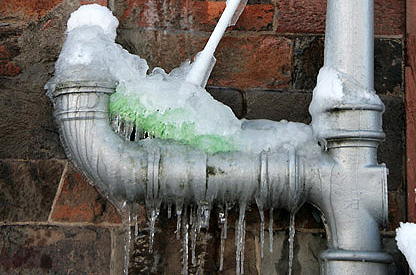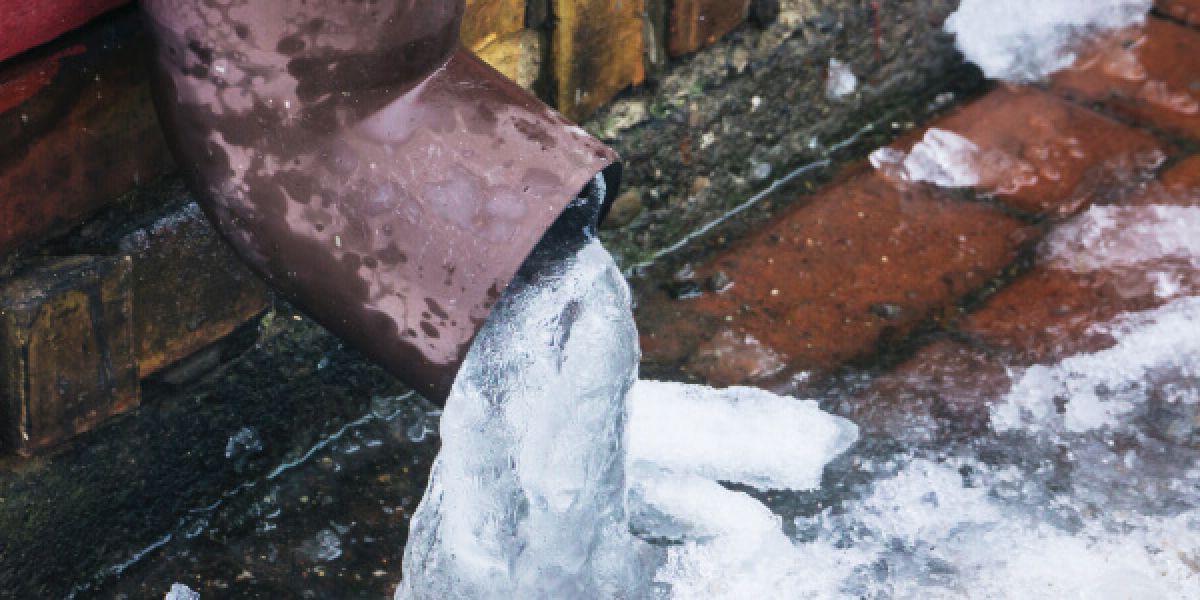Ways to Prevent Frozen Pipes in Winter: Professional Guidance
Ways to Prevent Frozen Pipes in Winter: Professional Guidance
Blog Article
The article listed below relating to How To Avoid Freezing Pipes is immensely motivating. Read on and draw your own assumptions.

Cold weather can ruin your pipes, especially by freezing pipes. Here's how to prevent it from occurring and what to do if it does.
Intro
As temperature levels decline, the risk of icy pipes rises, possibly bring about expensive repairs and water damage. Recognizing how to stop icy pipelines is vital for house owners in cold environments.
Avoidance Tips
Protecting vulnerable pipelines
Wrap pipes in insulation sleeves or use heat tape to safeguard them from freezing temperature levels. Concentrate on pipes in unheated or external locations of the home.
Home heating methods
Keep interior spaces properly warmed, especially locations with plumbing. Open up cabinet doors to allow warm air to distribute around pipes under sinks.
Exactly how to determine frozen pipes
Try to find reduced water flow from faucets, unusual odors or sounds from pipelines, and noticeable frost on subjected pipes.
Long-Term Solutions
Architectural modifications
Think about rerouting pipes away from outside wall surfaces or unheated locations. Add extra insulation to attics, basements, and crawl spaces.
Updating insulation
Buy high-quality insulation for pipelines, attics, and walls. Proper insulation helps preserve regular temperatures and minimizes the threat of icy pipelines.
Shielding Outside Plumbing
Yard hose pipes and outdoor faucets
Disconnect and drain yard tubes before winter season. Mount frost-proof spigots or cover outside taps with insulated caps.
Comprehending Icy Pipes
What causes pipes to ice up?
Pipelines freeze when revealed to temperature levels listed below 32 ° F (0 ° C) for prolonged durations. As water inside the pipelines ices up, it broadens, putting pressure on the pipe walls and possibly causing them to break.
Dangers and problems
Frozen pipes can lead to supply of water disruptions, home damage, and pricey repair work. Burst pipelines can flood homes and cause substantial structural damages.
Signs of Frozen Piping
Recognizing frozen pipelines early can prevent them from breaking.
What to Do If Your Pipelines Freeze
Immediate actions to take
If you presume icy pipelines, keep faucets available to relieve stress as the ice melts. Utilize a hairdryer or towels soaked in hot water to thaw pipelines slowly.
Verdict
Protecting against icy pipelines calls for proactive measures and quick reactions. By comprehending the reasons, signs, and safety nets, property owners can shield their pipes throughout cold weather.
6 Proven Ways to Prevent Frozen Pipes and Protect Your Home
Disconnect and Drain Garden Hoses
Before winter arrives, start by disconnecting your garden hoses and draining any remaining water. Close the shut-off valves that supply outdoor hose bibs and leave the outdoor faucet open to allow any residual water to drain. For extra protection, consider using faucet covers throughout the colder months. It’s also important to drain water from any sprinkler supply lines following the manufacturer’s directions.
Insulate Exposed Pipes
Insulating your pipes is an effective way to prevent freezing. Pipe insulation is readily available at home improvement stores and is relatively inexpensive. Pay close attention to pipes in unheated areas such as the attic, basement, crawl spaces, or garage. Apply foam insulation generously to create a buffer against the cold. You can also wrap your pipes in heat tape or thermostat-controlled heat cables for added warmth.
Seal Air Leaks
Inspect your home for any cracks or openings that could let in cold air. Seal any holes around the piping in interior or exterior walls, as well as the sill plates where your home rests on its foundation. Additionally, make sure to keep your garage door closed unless you’re entering or exiting. Leaving it open creates a significant air leak that can lead to frozen pipes.
Allow Warm Air Circulation
During cold snaps, it’s essential to allow warm air to circulate evenly throughout your home. Leave interior doors ajar to promote better airflow. Open kitchen and bathroom cabinets to help distribute heat consistently around the rooms. If you have small children or pets, be sure to remove any household chemicals or potentially harmful cleaners from open cabinets for safety.
Let Faucets Drip
A small trickle of water can make a big difference in preventing ice formation inside your pipes. When temperatures drop significantly, start a drip of water from all faucets served by exposed pipes. This continuous flow helps prevent the water from freezing. Additionally, running a few faucets slightly can relieve pressure inside the pipes, reducing the chances of a rupture if the water inside does freeze.
https://choateshvac.com/6-proven-ways-to-prevent-frozen-pipes-and-protect-your-home/

As a passionate reader on How To Avoid Freezing Pipes, I was thinking sharing that chunk was a smart idea. Are you aware of another individual who is occupied with the subject? Please feel free to share it. Kudos for your time. Revisit us soon.
Call Report this page